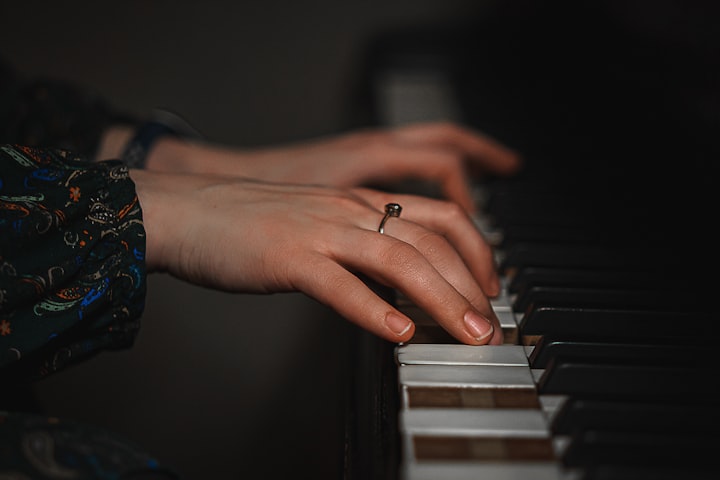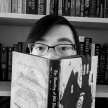How To Compose Solo Piano Music
Four tips for aspiring composers without formal music training

Whether you’re listening or playing your favorite songs on the piano after a stressful day, it’s no secret that music is therapeutic. If you have a creative side, perhaps you’ve considered expressing your inner world by writing your own music. But composing is a different skill than learning other peoples’ music, so where do you start?
Listen to other artists and learn to play their music
As with any artistic endeavor, you need to be an avid consumer of what you want to create. Ask yourself what style of piano music resonates with you and what artists inspire you. Listen to that music as much as you can.
Next, you’ll want to learn how to play some of your favorite artists’ songs. Depending on your experience, be mindful of your skill level and the music you’re striving to learn. Be willing to dedicate the time to practice and remember to be patient and be kind to yourself.
As far as the learning process, you can do this either by ear or with sheet music. As a sight reader, I’ve found it helps to connect what I’m hearing with all the notes on paper. Being able to read sheet music will also help with learning more complex pieces. It’ll give you insight into things like chord progressions and rhythms you might not catch just by listening. Regardless of which method you choose, learning a handful of songs by heart will cultivate passion and create a foundation for you to build from when you begin composing.
Know your diatonic scales (at the minimum)
I was a terribly unmotivated piano student. By the time I quit lessons and developed any interest in writing my own music, I had forgotten most of my theory and had to relearn it. If you want to compose, you need to know some theory. And at the minimum, you need to know your scales.
The most straightforward ones to commit to memory are diatonic scales. These scales have seven pitches and are composed of five whole steps (W) and two half steps (H). These steps refer to the distance between each note. A half step is comprised of two notes with no notes between them. A whole step is where two notes are separated by one note.

As far as identifying what notes are in a scale, pick a note — which will be the root, like C — and follow the formulas below:
For major keys: W, W, H, W, W, W, H
For example with C major: C, D, E, F, G, A, B, C
For minor keys: W, H, W, W, H, W, W
For example with E minor: E, F♯, G, A, B, C, D, E
There are many different types scales you can explore that go beyond the scope of this article, but you can write a lot of music just by knowing the diatonic ones. Remember that you don’t have to know every single scale before you begin composing. Your knowledge of theory will only increase as you learn others’ music and write your own. For instance, if you aren’t comfortable with certain scales, you can challenge yourself by writing a song in that key.
Practice improvisation
This is the fun part. Every composition begins as an improvisation. If you don’t know where to get started, pick a key you feel comfortable with and play around. Try out different chord progressions. Start with the left hand to create the mood and try out different chord progressions. Improvise a melody on top of that. Or start in reverse. Create a melody with your right hand and fill in the accompaniment with your left hand. If something sounds off, keep repeating it and see where it goes. Follow your intuition.
If you’re still lost and have no idea how to begin, play a song you know by heart. Focus on the left hand and notice the chord progressions. Practice improvising a different melody with your right hand. Or play the song’s melody and tweak the notes on your left hand. Mix them together and see if you can take the song in a new direction. Remember, when it comes to improvisation, there are no mistakes.
Notice anything that sounds good and write it down
A lot of composing is messing around on the piano. You might want to write a song about a certain experience or tell a story, but if you’re starting out, your focus is to become comfortable with improvisation. Once you improve, you can better match your compositions to what you envision in your mind. It took me about two albums worth of music before I could intentionally pick which notes best conveyed my emotions. Similar to when you first learned to play piano, you’re going to suck for a while before you get better. You’re probably not going to compose a masterpiece on your first attempt.
As you improvise, pay attention to anything that resonates with you. Again, there are no right or wrong answers. But if you find yourself playing the notes over and over, that means you’ve probably found something worth keeping.
Many times I’ve lost snippets in the moment of improvisation, so have a recorder on hand. Or if you’re old-school like me you can pencil each note on scrap paper. Either way, it’s crucial to write down your ideas for future reference as you develop your composition. And best case, if you miraculously stumble upon a spur of the moment piece that speaks to you, you’ll have it captured.
How do you know when you’ve finished a song? That’s up to you. When I sense a piece is done, I’ll transcribe it via Musescore (a free composition and notation software), then record it as an audio file. Just like recording your ideas during improvisation, having your composition documented is vital because if you ever forget it, you can relearn it. And it doesn’t hurt to give it time to sit before you revisit it with fresh ears and put on your editing hat. Ultimately, it’s your composition and only you know what when it’s complete.
Composing is another domain that not all pianists explore. As with learning an instrument, composing takes patience and practice. But if you stick with it, you’ll find creating your own music opens up a whole new world as a musician.
Originally published on Medium
About the Creator
J. S. Wong
Fiction writer, compulsive book reviewer, horror fan. Subscribe if you like stories on writing, books, and reading!
Follow me on Medium: https://jswwong.medium.com/
Follow my Wordpress blog: https://jswwongwriter.wordpress.com/






Comments (1)
I think this lesson applies to anything which one wishes to learn. Immersing oneself into a passion is the way to go. I am a guitar person myself, so this advice can work for me. You obviously enjoy your passion.